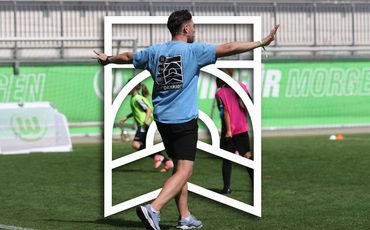Preparing for Competition: A Practical Guide for Coaches
Preparing for competition goes far beyond tactics and training. For young athletes to have a safe, enjoyable, and rewarding experience, coaches must ensure that all logistical and emotional elements are in place. That’s where the acronym PEP comes in—People, Equipment, and Provisions—a simple yet effective framework to help coaches cover all bases.
PEOPLE: Communication and Safeguarding
Start with the people involved—players, parents, coaches, and organisers. Clear communication is essential. Everyone should know:
- Dates, times, and venues
- Transport arrangements
- Costs and accommodation details
- Competition rules and safeguarding policies
- Sharing this information early allows time to coordinate support and avoid last-minute confusion.
Equally important is safeguarding. Coaches must:
- Keep accurate medical and emergency contact records
- Ensure informed consent forms are signed
- Understand and follow safeguarding policies
- Carry a first-aid kit and be first-aid trained
These steps help create a safe environment where children can focus on enjoying the competition.
EQUIPMENT: Be Ready, Not Rushed
Nothing derails a competition day like forgotten gear. Coaches should prepare a checklist that includes:
- Team uniforms and sport-specific equipment (e.g., shin pads, goggles)
- Warm-up tools like cones, bibs, and balls
- Required documentation or licenses
A checklist ensures nothing is missed before departure—and nothing is left behind afterward.
PROVISIONS: Fuel and Comfort
Especially for multi-day events, keeping everyone nourished and comfortable is key. Consider:
- Will food and drinks be available at the venue?
- What should children bring in their lunch bags?
- Does accommodation include meals?
- Is there a laundry service for kit washing?
A quick call to the venue or a scouting visit can help iron out these details in advance.
Managing Expectations: The Emotional Prep
Beyond logistics, managing expectations is crucial for a positive competition experience. Coaches should align expectations with:
- Themselves and fellow coaches – Discuss playing time, coaching style, and how to present the competition to kids.
- Programme leaders – Ensure your approach aligns with the wider goals of the club or school.
- Parents – Be transparent about roles, playing time, and behaviour expectations.
- Participants – Clarify goals, responsibilities, and the spirit of True Competition: striving to improve, not just to win.
Setting expectations early builds trust, reduces conflict, and helps everyone stay focused on what matters most—growth, enjoyment, and learning.
Final Thought
Preparing for competition is about more than just showing up. With thoughtful planning, clear communication, and shared expectations, coaches can create a safe, supportive, and enriching environment where young athletes thrive.
Remember PEP: People, Equipment, Provisions—and always prepare with purpose.
Watch the full videos below
Comments
Related Pages


